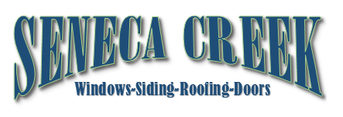Silver Spring Roofing: Article About Different Metals For Flashing
This term refers to the water that runs down the sides of the roof, which refers to its description as runoff. Depending on the materials used for the rooftop, the roof's runoff may become contaminated with chemicals.
Question for Silver Spring roofing experts Seneca Creek Home Improvement: How long do most flashing systems last?Depending on the material chosen and the regular weather that the system has to deal with, rooftop flashings may last anywhere from 15 to upwards of 30 years. If homeowners are fastidious in their care for their rooftops, they may extend the life of their flashing system by upwards of five years as well.

The rooftop's flashing system is one of the most important components of the entire structure. The flashing is usually installed between shingles and at the edge of the roof to make sure that water damage does not penetrate the sensitive sections within. Most Silver Spring roofing contractors set up flashing as a standard part of any installation, but it is important for homeowners to know about the different types that can be used in order for them to make the best possible decisions on future purchases and installations. There are several primary metals that are used for all flashing systems.
Aluminum is the most commonly used alloy for residential flashing systems. It is a popular choice because of how durable and low cost it is. The metal is easy to install and capable of resisting all types of wear and tear, no matter how bad the weather is in the local area. Professionals will need to treat aluminum appropriately, however, as it is still vulnerable in highly corrosive and polluted environments. Residents should regularly inspect the flashing around their rooftops as they would any other component.
Copper flashing is another popular option for flashing. It is even more durable than aluminum, and it can be molded into all types of irregular shapes, which means that it is one of the most versatile materials that can be used.
Have a question regarding roofing, windows or gutters? Please ask an expert from Seneca Creek Home Improvement of Silver Spring MD today.
However, copper is much more expensive than aluminum. If budget is not a problem, though, the copper flashing system will help users protect their home for as long as it is necessary.
Another option that individuals may purchase is lead coated copper. This is a relatively ordinary copper flashing installation that affixes lead coated copper sections to the roof's vital areas. It is durable and particularly resistant to corrosion, but the runoff may become a problem. In some instances, however, the runoff can be seen as a solution, as it can kill organic life forms such as moss and lichen that try to make their homes on the rooftop.
Finally, lead by itself may be considered for special applications where a tremendous degree of malleability is required, such as for chimney step flashing. Lead can be a good option for most installations by its own merits of being easy to install and resistant to rust. However, lead is also a much softer material, which means that it may be more susceptible to physical damage over time. Thermal movements may cause long term problems in the structure and integrity of lead flashing.






